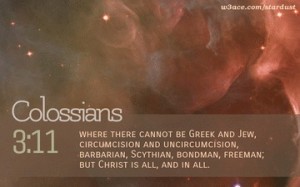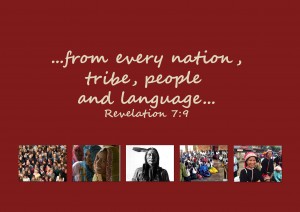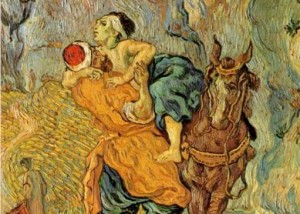1)As well as being incomprehensibly wicked, morally repugnant and socially harmful, racial hatred is intellectually indefensible. After all, there is no clear link between race and intelligence, or athletic ability or any other socially desirable trait. There are certainly far greater differences within racial groups than there are between them; the differences between the races are superficial and inconsequential. We had hoped those facts would end serious debate about the merits of racist social policies. But we have underestimated just how inventive malicious minds can be. Online, they have insidious influence.
The new racists – call them the Alt-Right or the Alt-Lite, if you prefer – combine moral relativism and social psychology to argue that racism is a normal and acceptable human condition. They argue that social psychology has discovered a “natural instinct”, which combines an “instinctive wariness of the foreign and the unfamiliar” with a “preference for homogeneity over diversity”. Some people feel this instinct more intensely than others. They “prioritise the interests of their tribe” and expect others to do the same.
 This “conservative instinct” has been produced by evolution to foster group identity; the argument seems to be that racist feelings are innate and immutable. Finally, and crucially, science has not been able to discover one set of moral norms. And if morality is relative, then there is no moral imperative to challenge our tribal instincts. (And who knows – maybe racism will turn out to be a good evolutionary strategy?)
This “conservative instinct” has been produced by evolution to foster group identity; the argument seems to be that racist feelings are innate and immutable. Finally, and crucially, science has not been able to discover one set of moral norms. And if morality is relative, then there is no moral imperative to challenge our tribal instincts. (And who knows – maybe racism will turn out to be a good evolutionary strategy?)
2) If science cannot refute moral relativism then science alone cannot defeat the new racism – and the new racism needs to be defeated. As democracy flirts with populism and demagoguery, we will need something more than slogans and soundbites. Tribalism will be a constant temptation in politics. We will need a deep moral vision – something which goes beyond rational self-interest or post-liberal identity politics. Christianity offers the necessary intellectual, moral and emotional resources.
 3) Of course, Christians believe in objective moral values and reject scientism; this immediately provides a response to the Alt-Right. Furthermore, Christian values leave no room for racism. This does not mean, of course, that mere Christian belief exorcises a person of every prejudice. Far from it; many Christians have refused to abandon their racist or nationalist prejudices, disguising these as patriotism or conservative moral values. The Bible itself is very clear that mere assent to Christian belief is of no benefit; its word must be taken into our hearts and put into action.
3) Of course, Christians believe in objective moral values and reject scientism; this immediately provides a response to the Alt-Right. Furthermore, Christian values leave no room for racism. This does not mean, of course, that mere Christian belief exorcises a person of every prejudice. Far from it; many Christians have refused to abandon their racist or nationalist prejudices, disguising these as patriotism or conservative moral values. The Bible itself is very clear that mere assent to Christian belief is of no benefit; its word must be taken into our hearts and put into action.
4) The Christian’s primary loyalty is to Christ. While we are to pray for our rulers and seek  the good of the city we live in, the Kingdom of God takes priority. Jesus’s church does not exclude anyone because of their ethnic, racial or social identity. It is entirely hypocritical and inconsistent to welcome members of every members from every tribe and tongue and kindred nation into the Kingdom of Heaven, yet to resent their presence in New York, Los Angeles, London or Belfast.
the good of the city we live in, the Kingdom of God takes priority. Jesus’s church does not exclude anyone because of their ethnic, racial or social identity. It is entirely hypocritical and inconsistent to welcome members of every members from every tribe and tongue and kindred nation into the Kingdom of Heaven, yet to resent their presence in New York, Los Angeles, London or Belfast.
The point here is that Christians are commanded to love and welcome their neighbours even if they disagree with the policies that created their neighbourhood. Rational disagreement about immigration policy is healthy and should be welcomed. After all, every nation must control its borders if it is to control its economy (the invisible hand of the market may have its limits!) But, in the modern world, deciding on a rational and fair immigration policy will be a complex matter. In the meantime, patience, kindness and generosity should be the order of the day; we should show mercy as we have been shown mercy.
5) Article 1 of the UN Declaration of Human Rights states that “all human beings are born free and equal in dignity and rights.” But why should we think that humans are either free or equal? Some argue that rights were created by our laws: but it is very difficult to take human rights seriously and at the same time claim that they are social constructs. The whole point is that human rights are supposed to apply to all human beings and so are universal.
Some people think that freedom and equality are self-evident, but that is largely because of the Judaeo-Christian tradition which has nurtured them. It is very difficult to believe in equal human worth, and to believe that we should not privilege any one “tribe” over another, without a commitment to Christian theology. Christianity teaches that every person is in God’s image, and Jesus died for every one of us. Moreover, every human is of equal worth; and that worth is incalculable.
 6) If every person is descended from one family and if we share one common human nature, then we have more in common that what separates us. If an individual has covenanted to obey the laws of a nation, respect its customs and to work for the common good, then they can belong to that nation; their ethnicity or race is irrelevant.
6) If every person is descended from one family and if we share one common human nature, then we have more in common that what separates us. If an individual has covenanted to obey the laws of a nation, respect its customs and to work for the common good, then they can belong to that nation; their ethnicity or race is irrelevant.
7) If everyone is marked by original sin, then there is no room for racial or national arrogance. No-one who takes the biblical doctrine of sin seriously can look down on his “inferiors” or up to his “betters”. No one human is worth more than any other if Jesus died for all. Elitism is impossible if we are obliged to show mercy as we have been shown mercy. No class or creed, no race or community, can consider itself more deserving than any other; every community should feel the same burden and receive the same justice.
8) According to the Christian scriptures no-one is righteous: all have sinned and fallen short of God’s glory. Christ died and rose again for every human being without exception and God commands everyone, everywhere to repent. Human pride is dangerous; we dare not judge others because one day we also will be judged. Therefore, we cannot criticise another community until we have examined our own. We cannot – dare not – blame outsiders for our woes until we have examined our own faults.
 9) Before we rush to condemn others we should remember that we live in a fallen world; every individual, every community, is fighting a hard battle just to get by. Without the virtues of generosity and forgiveness we will all struggle to flourish. Without kindness and patience we cannot create a sane environment in which people can even discuss which policies are fair.
9) Before we rush to condemn others we should remember that we live in a fallen world; every individual, every community, is fighting a hard battle just to get by. Without the virtues of generosity and forgiveness we will all struggle to flourish. Without kindness and patience we cannot create a sane environment in which people can even discuss which policies are fair.
10) The Church is meant to be the “final apologetic”: Jesus said that the love demonstrated by Christians should be decisive evidence of God’s grace. The world will not listen to our arguments or evidences if we continue to act like unbelievers by putting our own rational self-interest ahead of the good of others.
